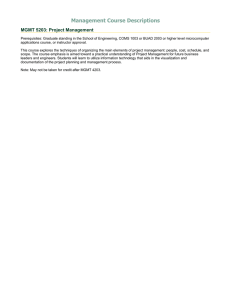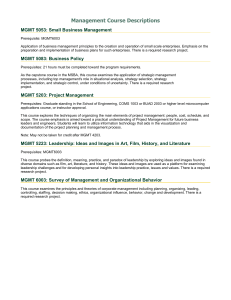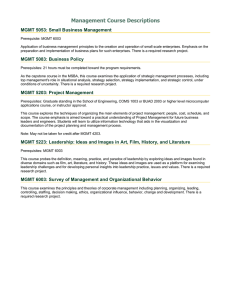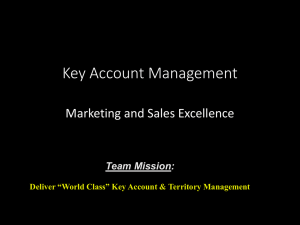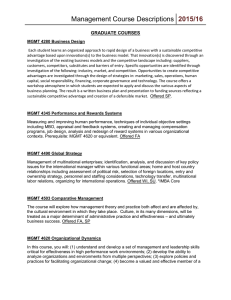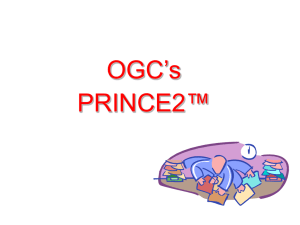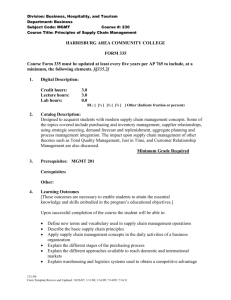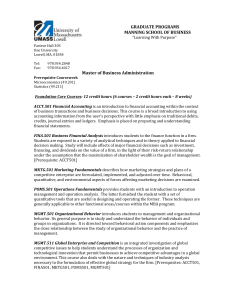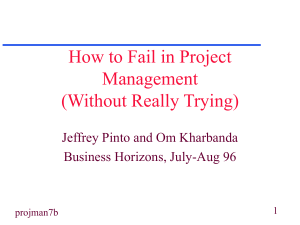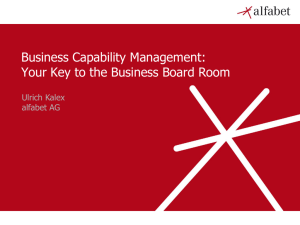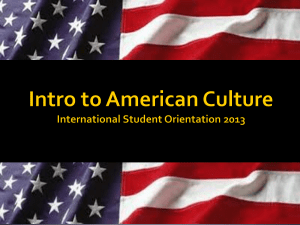project management graduate certificate program
advertisement
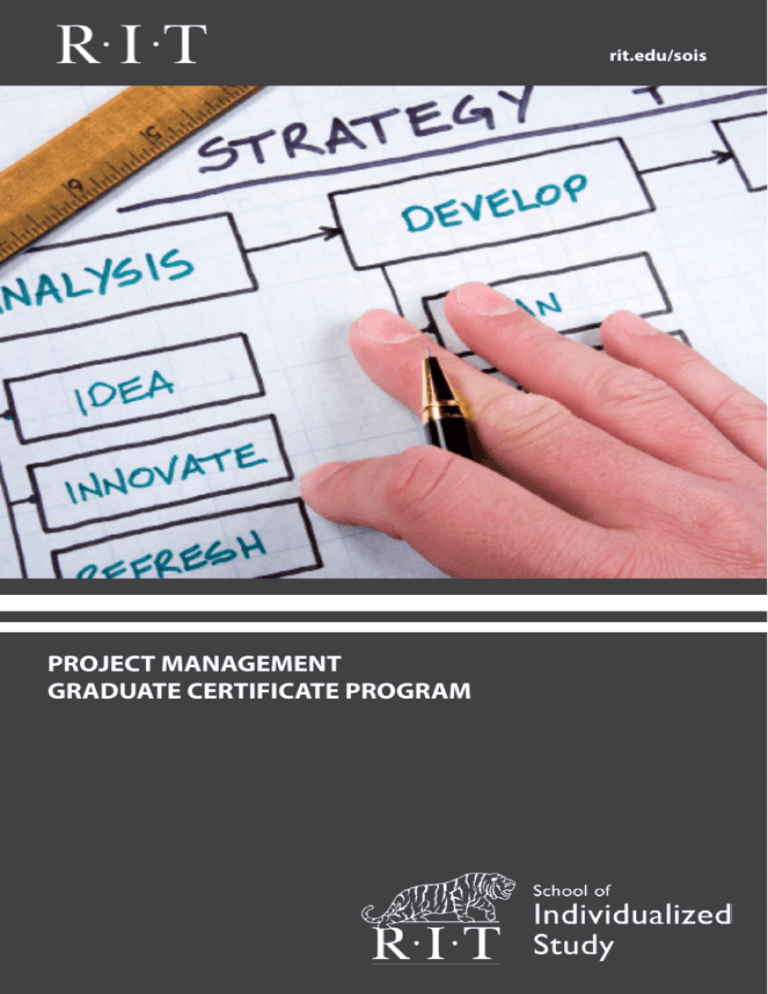
rit.edu/sois PROJECT MANAGEMENT GRADUATE CERTIFICATE PROGRAM PROJECT MANAGEMENT THE SCHOOL OF INDIVIDUALIZED STUDY Just as a mechanic meticulously tweaks and supervises the construction of a machine, a Project Manager must take this same approach when challenged with a project. From initiation to termination, a project must be well-oiled & managed in the areas of organization, control, personnel, and time-management. Without success in these crucial areas a project, like a machine, will falter. Encountering the challenges of cultural and social differences, along with dealing with an assortment of industrial focuses, the Project Manager must be aware of his or her goals of a project on a daily and even hourly basis. This certificate will give you the background that you need to become an effective project manager. BUSI-711: ADVANCED PROJECT MANAGEMENT Course covers the advanced project management topics necessary for implementation of and excellence in project management. It deals with turning the principles and theory of project management into practice. Addresses the best practices for project management in the world; project portfolio management and ROI; the project office and Six Sigma; project risk management and integrated projects; corporate cultures, behavior, and cultural failures; informal, adaptive, and extreme project management; and critical chain project management. Integrates aspects of the Project Management Institute, A Guide to the Project Management Body of Knowledge (PMBOK® Guide)- Fifth Edition, Project Management Institute, Inc., 2013. The graduate certificate in Project Management can be used towards a Master of Science in Professional Studies at RIT. Contact Wendy Giuliano for more information. Students must achieve a program GPA of at least 3.0 in order to be certified. 3 REQUIRED COURSES BUSI-710: PROJECT MANAGEMENT This course addresses project management from a multidisciplinary perspective, covering the fundamental nature of and techniques for managing a broad range of projects. Topics cover the Project Management Life Cycle from Planning to Termination. It also addresses the behavioral and quantitative facets of project management, as well as the use of methods, tools and techniques for the initiation, planning, and execution of projects. Introduces the standard framework, processes and knowledge areas of the Project Management Institute, A Guide to the Project Management Body of Knowledge (PMBOK® Guide)Fifth Edition, Project Management Institute, Inc., 2013. Prerequisites: Bachelor’s degree or minimum of 5 years of work experience in a project related business environment. Recommended education or work experience in organizational behavior, mathematics and basic accounting. Prerequisites: BUSI-710 Project Management; or permission of the instructor. BUSI-712: INTERNATIONAL PROJECT MANAGEMENT With the increasing frequency of globalization, mergers, and acquisitions, international projects are becoming more prevalent and approaching the norm for many organizations. This course addresses a wide range of international projects—based in different industries and multiple countries. It deals with cultural and social differences within firms; cultural and social differences among countries and within countries; languages and dialect variations; different management practices and structures; religious practices; legal, regulatory, and reporting requirements; technology and infrastructure differences in different regions; and time zone differences. Incorporates aspects of the Project Management Institute, A Guide to the Project Management Body of Knowledge (PMBOK® Guide)- Fifth Edition, Project Management Institute, Inc., 2013. Prerequisites: BUSI-711 Advanced Project Management; or permission of the instructor. PMBOK is a registered mark of the Project Management Institute, Inc. ELECTIVES The Project Management Graduate Certificate requires two approved electives (select from the following): BLEG 745 Legal and Ethical Issues in Technology-Intenstive Environment HRDE 720 Theory of Organizational Development HRDE 722 Talent Development HRDE 731 Team Process and Facilitation Skills HRDE 750 Theories of Career Development MGIS 715 Information Technology and Globalization MGMT 740 Organizational Behavior and Leadership MGMT 741 Managing Organizational Change MGMT 742 Technology Management MGMT 745 Social and Political Environment of Business MGMT 755 Negotiations MGMT 756 Power and Influence MGMT 762 Managing New Process and Product Development MGMT 775 Business Ethics PROF 799 Individual Leadership Development PROF 799 Leading and Developing Teams SERQ 710 Evolving Contexts in Service SERQ 712 Breakthrough Thinking, Creativity and Innovation SERQ 722 Customer Centricity TCOM 621 Proposal Writing BECAUSE EVERY TIGER’S STRIPES ARE DIFFERENT. Wendy Giuliano - Academic Advisor Rochester Institute of Technology School of Individualized Study 31 Lomb Memorial Drive Rochester, NY 14623 585-475-7049 wjgcms@rit.edu rit.edu/sois
